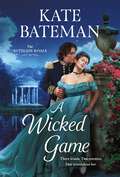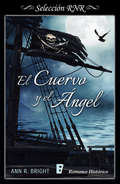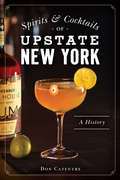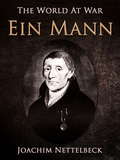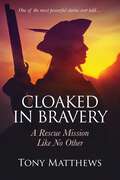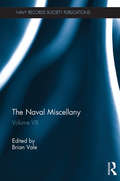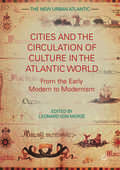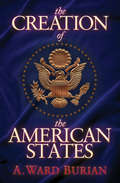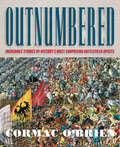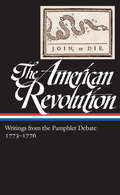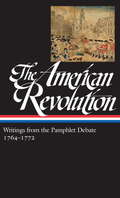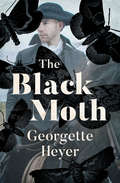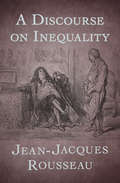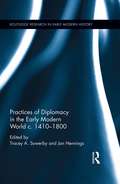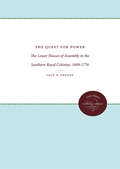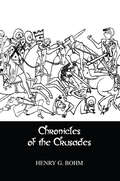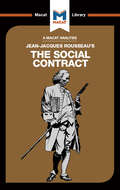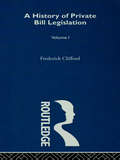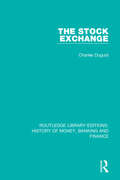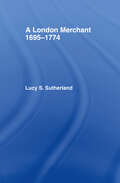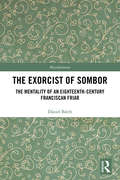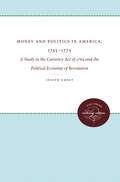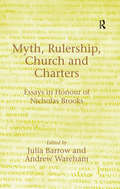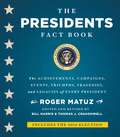- Table View
- List View
A Wicked Game: The Ruthless Rivals (Ruthless Rivals #3)
by Kate BatemanA Wicked Game marks the third book in Kate Bateman's popular regency romance series, Ruthless Rivals.If there’s one thing impossible for a Davies to resist, it’s a challenge from a Montgomery. . .A teasing bet.Shipwrecked and imprisoned thanks to an incorrect map, Captain Morgan Davies has returned to London to exact sweet revenge on the cartographer responsible for his suffering. He’s also vowed to claim the winner’s prize—three kisses—in the bet he made with his long-time nemesis, the prickly, smart-mouthed Harriet Montgomery. His incarceration has clarified his feelings for her, but convincing the infuriating woman he wants to marry her is going to be his greatest challenge yet. When Harriet’s revealed to be the very mapmaker he seeks, Morgan decides to combine revenge and seduction into one delightful package. . . A dangerous enemy.Harriet’s always wanted witty scoundrel Morgan, and now he’s back; as handsome and as taunting as ever. She has enough on her plate dealing with her father’s failing eyesight and a rival mapmaker copying her work to play wicked games with a dastardly Davies—however tempting he might be. But when a threat from Morgan’s past puts them both in danger, Harry discovers that she and Morgan might not be enemies at all . . .
El cuervo y el ángel
by Ann R. BrightUna romántica novela en la que la autora nos invita a viajar con sus personajes o, simplemente, a ser espectadores de su emocionante historia. En un mundo despiadado y sin más ley que la de la fuerza, ella supo encontrar luz. Y lo hizo a través del hombre más oscuro y temido de todos... Año 1736. Decían que sus ojos eran dos abismos, negros y vacíos, como los de un cuervo, que cada barco que divisaban aquellas velas malditas perecía bajo su crueldad, y cada hombre que caía bajo su mano conocía el infierno en vida. Ella, sin embargo, era un ser dulce y maravilloso, ella era luz. Una mañana, después de haber hundido un buque de la Marina Real, el temido pirata al que mentaban como El Cuervo avistó un pequeño paquebote en el horizonte. Sin entender por qué, algo en su oscuro corazón le habló... Y esa mañana, ella oyó loscañones, sintió los pasos arrogantes en la cubierta... Y temió como nunca... Esa mañana fue tomada cautiva... Esa mañana cambió su vida... Esa mañana, la vida de los dos cambió, porque el amor es capaz de abrir brechas en la más profunda oscuridad.
Spirits and Cocktails of Upstate New York: A History (American Palate)
by Donald CazentreFrom the Hudson Valley to the Niagara River, Upstate New York has a long and grand history of spirits and cocktails. Early colonists distilled rum, and pioneering settlers made whiskey. In the 1800s, a fanciful story of a tavern keeper and a “cock’s tail” took root along the Niagara River, and the earliest definition of the “cocktail” appeared in a Hudson Valley paper. The area is home to its share of spirited times and liquid legends, and the recent surge in modern distilleries and cocktail bars only bolsters that tradition. Author Don Cazentre serves up these tales of Upstate New York along with more than fifty historic and modern cocktail recipes.
Ein Mann: Des Seefahrers Und Aufrechten Bürgers Joachim Nettelbeck Wundersame Lebensgeschichte (The World At War)
by Joachim NettelbeckJoachim Christian Nettelbeck (* 20. September 1738 in Kolberg; 29. Januar 1824 ebenda) war ein durch seine Rolle bei der Verteidigung Kolbergs im Jahre 1807 und seine Autobiographie bekannter deutscher Volksheld. Als Elfjähriger durfte Nettelbeck auf dem Schiff seines Onkels ausnahmsweise nach Amsterdam mitreisen. Dort schlich er sich im Hafen an Bord eines holländischen Ozeanseglers und kam erst auf offener See wieder zum Vorschein. Das Schiff war ein Sklavenhändler und befuhr das Dreieck Westeuropa - Westafrika - Westindien - Westeuropa. Nach neunmonatiger Reise besuchte Nettelbeck bis zur Konfirmation wieder die Schule in Kolberg. Danach begann er eine Seemannsausbildung, zunächst als Schiffsjunge auf Ost- und Nordseefahrern. (Auszug aus Wikipedia)
Cloaked in Bravery: A Rescue Mission Like No Other
by Tony MatthewsExperience the extraordinary journey of a woman who risked everything to follow her man into battle in a desperate attempt to rescue him from the death that inevitably beckoned. Christian, driven by an unwavering devotion to her missing husband, cast aside her comfortable life, family, and even her children to venture into the heart of battle. Disguised as a man, a common foot-soldier, Christian embraced the chaos and carnage of European history's bloodiest conflicts. With a fiery spirit and indomitable courage, she fought alongside men, facing musket-fire, swords, and cannonballs, all in a quest to ensure her husband's survival. Her rollicking good humour, captivating charm, and steely-eyed determination endeared her to comrades and enemies alike. Christian's selflessness knew no bounds. Despite enduring grave wounds, she refused to be deterred, persevering through unimaginable pain. She embodied the strength of a man and the passion of a woman, fearlessly aiding wounded comrades on the battlefield, regardless of the peril she faced. Unveiling a hidden gem of military history, Cloaked in Bravery reveals the compelling tale of a remarkable woman whose devotion and valour transcended the confines of gender. Prepare to be captivated by Christian Davies, as her story unveils a love so powerful it defied all odds.
The Naval Miscellany: Volume VIII (Navy Records Society Publications)
by Brian ValeBrian Vale is a naval historian with degrees from Keele and King’s College London. A life-long member of the Society for Nautical Research and the Navy Records Society, he has long specialised in Anglo-South American maritime history. His books include Independence or Death! British sailors and Brazilian Independence, A Frigate of King George, The Audacious Admiral Cochrane and Cochrane in the Pacific: Fortune and Freedom in Spanish America.
Cities and the Circulation of Culture in the Atlantic World: From the Early Modern to Modernism (The New Urban Atlantic)
by Leonard MorzéThis book provides a much-needed comparative approach to the history of cities by investigating the dissemination of cultural forms between cities of the Atlantic world. The contributors attend to the various forms and norms of cultural representation in Atlantic history, examining a wealth of diverse topics such as the Portuguese Atlantic; the Spanish Empire; Guy Fawkes and the conspiratorial rhetoric of slaves; Albert-Charles Wulffleff and the Parc-Musée of Dakar; and the writings of Jane Austen, Alexis de Tocqueville, Benjamin Franklin, and others. By interpreting Atlantic urban history through sustained attention to customs and representational forms, an international group of nine contributors demonstrate the power of culture in the making of Atlantic urban experience, even as they acknowledge the harsh realities of economic history.
The Creation of the American States
by A. Ward BurianThe fascinating story of how and why all fifty American states were formed—and how they became a part of history’s greatest social experiment. Every US state has a unique history that deserves a separate book. The Creation of the AmericanStates provides readers with essential information on how each of the fifty states came into being. From the time of the first explorers and settlers to the present day, A. Ward Burian tells the story of how the America was established over the course of four hundred years. He examines what motivated brave souls to venture into an unknown wilderness and then delves into the time frame for each state’s discovery, settlement, and consolidation into the United States. With brief biographies interjected that spark human interest and provide perspective to what was taking place, The Creation of the American States shares a better understanding of how the North American continent was transformed from a wilderness into a powerful nation—state by state.
Outnumbered: Incredible Stories of History's Most Surprising Battlefield Upsets
by Cormac O'BrienFourteen dramatic stories of troops outnumbered but not outmatched—from Hannibal’s Carthaginians to the English at Agincourt to the Red Army in WWII.Even a commander as fearless, self-assured, and battle-hardened as Alexander the Great, leading 40,000 Macedonian troops, must have quailed at the sight that met him as he neared the village of Issus, Asia Minor, in 333 BCE: an unexpectedly and unimaginably vast Persian force of some 100,000 men, spanning the Mediterranean coastal plain as far as the eye could see. For warfare had already demonstrated, and has confirmed ever since, that numerical superiority consistently carries the day. And yet, every once in a while, such lopsided engagements have had an unexpected outcome, and proved to be a crucible in which great leaders, and history, are forged.Outnumbered chronicles fourteen momentous occasions on which a smaller, ostensibly weaker force prevailed in an epochal confrontation. Thus, Alexander, undaunted, devised a brilliant and daring plan that disoriented and destroyed the Persian force and, consequently, its empire. Likewise, during the US Civil War, Confederate Gen. Robert E. Lee, despite being out-positioned and outnumbered more than two to one by Union forces at Chancellorsville, Virginia, hatched an audacious and surprise strategy that caught his enemy completely unawares. Other equally unexpected, era-defining victories are shown to have derived from the devastating deployment of unusual weaponry, sheer good fortune, or even the gullibility of an enemy, as when Yamashita Tomoyuki, commander of 35,000 ill-supplied Japanese troops, convinced the 85,000-strong British Commonwealth army to surrender Singapore in 1942.Together these accounts constitute an enthralling survey that captures the excitement and terrors of battle, while highlighting the unpredictable nature of warfare and the courage and ingenuity of inspired, and inspiring, military leaders who, even when the odds seemed insurmountable, found a path to glory.“There are similar titles about decisive battles and interesting campaigns, but none quite like this . . . an appealing choice for many military history enthusiasts.” —Library JournalIncludes color illustrations and maps
The American Revolution: Writings from the Pamphlet Debate 1773-1776 (Library of America: The American Revolution Collection #2)
by Various Gordon S. WoodFor the 250th anniversary of the start of the American Revolution, acclaimed historian Gordon S. Wood presents a landmark collection of British and American pamphlets from the political debate that divided an empire and created a nation: In 1764, in the wake of its triumph in the Seven Years War, Great Britain possessed the largest and most powerful empire the world had seen since the fall of Rome and its North American colonists were justly proud of their vital place within this global colossus. Just twelve short years later the empire was in tatters, and the thirteen colonies proclaimed themselves the free and independent United States of America. In between, there occurred an extraordinary contest of words between American and Britons, and among Americans themselves, which addressed all of the most fundamental issues of politics: the nature of power, liberty, representation, rights and constitutions, and sovereignty. This debate was carried on largely in pamphlets and from the more than a thousand published on both sides of the Atlantic during the period Gordon S. Wood has selected thirty-nine of the most interesting and important to reveal as never before how this momentous revolution unfolded. This second of two volumes follows the course of the ultimate crisis that led from the Boston Tea Party to the final break, as the focus of debate turns from questions of representation and rights to the crucial issue of sovereignty. Here is a young Thomas Jefferson offering his radical Summary View of the Rights of British America; Samuel Johnson pronouncing Taxation no Tyranny and asking "How is that we hear the loudest yelps for liberty among the drivers of negros?"; Edmund Burke trying to hold the empire together in his famous Speech on Conciliation; and Thomas Paine turning the focus of American animus from Parliament to king in the truly revolutionary pamphlet Common Sense. The volume includes an introduction, headnotes, a chronology of events, biographical notes about the writers, and detailed explanatory notes, all prepared by our leading expert on the American Revolution. As a special feature, each pamphlet is preceded by a typographic reproduction of its original title page.From the Hardcover edition.
The American Revolution: Writings from the Pamphlet Debate 1764-1772 (Library of America: The American Revolution Collection #1)
by Various Gordon S. WoodFor the 250th anniversary of the start of the American Revolution, acclaimed historian Gordon S. Wood presents a landmark collection of British and American pamphlets from the political debate that divided an empire and created a nation: In 1764, in the wake of its triumph in the Seven Years War, Great Britain possessed the largest and most powerful empire the world had seen since the fall of Rome and its North American colonists were justly proud of their vital place within this global colossus. Just twelve short years later the empire was in tatters, and the thirteen colonies proclaimed themselves the free and independent United States of America. In between, there occurred an extraordinary contest of words between American and Britons, and among Americans themselves, which addressed all of the most fundamental issues of politics: the nature of power, liberty, representation, rights and constitutions, and sovereignty. This debate was carried on largely in pamphlets and from the more than a thousand published on both sides of the Atlantic during the period Gordon S. Wood has selected thirty-nine of the most interesting and important to reveal as never before how this momentous revolution unfolded. This first of two volumes traces the debate from its first crisis--Parliament's passage of the Stamp Act, which in the summer of 1765 triggered riots in American ports from Charleston, South Carolina, to Portsmouth, New Hampshire--to its crucial turning point in 1772, when the Boston Town Meeting produces a pamphlet that announces their defiance to the world and changes everything. Here in its entirety is John Dickinson's justly famous Letters from a Farmer in Pennsylvania, considered the most significant political tract in America prior to Thomas Paine's Common Sense. Here too is the dramatic transcript of Benjamin Franklin's testimony before Parliament as it debated repeal of the Stamp Act, among other fascinating works. The volume includes an introduction, headnotes, a chronology of events, biographical notes about the writers, and detailed explanatory notes, all prepared by our leading expert on the American Revolution. As a special feature, each pamphlet is preceded by a typographic reproduction of its original title page.From the Hardcover edition.
The Black Moth: A Romance Of The Xviii Century (Historical Romances Series #1)
by Georgette Heyer<p>The debut novel from the beloved New York Times–bestselling “Queen of the Regency Romance” (Lauren Willig).<p> <p>Accused of cheating at cards, Jack Carstares left England seven long years ago, sacrificing his honor for that of the actual culprit: his eldest brother. Disgraced, Jack turned his talents toward becoming a highwayman, an occupation he has no intention of giving up upon his return to his beloved South Country.<p> <p>Determined not to claim his title as the rightful Earl of Wyndham, Jack roams the countryside on horseback. Encountering his old adversary, the notorious Duke of Andover, also known as the Black Moth, Jack thwarts the attempted abduction of the lovely, dark-haired Diana Beauleigh.<p> <p>More determined than ever to have her, the duke continues to pursue Diana, but she is not about to surrender her virtue to him, having lost her heart to the mysterious outlaw who rescued her. If he can defeat the Black Moth for good, Jack may finally reclaim his honor—and bridge the gap between his tarnished past and his hope for Diana’s hand . . .<p> <p>Written when Georgette Heyer was only seventeen, in an attempt to entertain her younger brother, this Georgian-era romance continues to captivate readers to this day.<p>
A Discourse on Inequality: A Discourse On The Origin Of Inequality, And A Discourse On Political Economy
by Jean-Jacques RousseauA fascinating examination of the relationship between civilization and inequality from one of history&’s greatest minds The first man to erect a fence around a piece of land and declare it his own founded civil society—and doomed mankind to millennia of war and famine. The dawn of modern civilization, argues Jean-Jacques Rousseau in this essential treatise on human nature, was also the beginning of inequality. One of the great thinkers of the Enlightenment, Rousseau based his work in compassion for his fellow man. The great crime of despotism, he believed, was the raising of the cruel above the weak. In this landmark text, he spells out the antidote for man&’s ills: a compassionate revolution to pull up the fences and restore the balance of mankind. This ebook has been professionally proofread to ensure accuracy and readability on all devices.
Practices of Diplomacy in the Early Modern World c.1410-1800
by Tracey A. Sowerby Jan HenningsPractices of Diplomacy in the Early Modern World offers a new contribution to the ongoing reassessment of early modern international relations and diplomatic history. Divided into three parts, it provides an examination of diplomatic culture from the Renaissance into the eighteenth century and presents the development of diplomatic practices as more complex, multifarious and globally interconnected than the traditional state-focussed, national paradigm allows. The volume addresses three central and intertwined themes within early modern diplomacy: who and what could claim diplomatic agency and in what circumstances; the social and cultural contexts in which diplomacy was practised; and the role of material culture in diplomatic exchange. Together the chapters provide a broad geographical and chronological presentation of the development of diplomatic practices and, through a strong focus on the processes and significance of cultural exchanges between polities, demonstrate how it was possible for diplomats to negotiate the cultural codes of the courts to which they were sent. This exciting collection brings together new and established scholars of diplomacy from different academic traditions. It will be essential reading for all students of diplomatic history.
The Quest for Power: The Lower Houses of Assembly in the Southern Royal Colonies, 1689-1776 (Published by the Omohundro Institute of Early American History and Culture and the University of North Carolina Press)
by Jack P. GreeneIn this study, Greene describes the rise of the lower houses in the four southern royal colonies--Virginia, North Carolina, South Carolina, and Georgia--in the period between the Glorious Revolution and the American War for Independence. It assesses the consequences of the success of the lower houses, especially the relationship between their rise to power and the coming of the American Revolution.Originally published in 1963.A UNC Press Enduring Edition -- UNC Press Enduring Editions use the latest in digital technology to make available again books from our distinguished backlist that were previously out of print. These editions are published unaltered from the original, and are presented in affordable paperback formats, bringing readers both historical and cultural value.
Chronicles Of The Crusades
by BohmFirst published in 2006. Routledge is an imprint of Taylor & Francis, an informa company.
The Social Contract
by James HillFew people can claim to have had minds as fertile and creative as the French philosopher Jean-Jacques Rousseau. One of the most influential political theorists of the modern age, he was also a composer and writer of opera, a novelist, and a memoirist whose Confessions ranks as one of the most striking works of autobiography ever written. Like many creative thinkers, Rousseau was someone whose restless mind could not help questioning accepted orthodoxies and looking at matters from novel and innovative angles. His 1762 treatise The Social Contract does exactly that. Examining the nature and sources of legitimate political power, it crafted a closely reasoned and passionately persuasive argument for democracy at a time when the most widely accepted form of government was absolute monarchy, legitimised by religious beliefs about the divine right of kings and queens to rule. In France, the book was banned by worried Catholic censors; in Rousseau’s native Geneva, it was both banned and burned. But history soon pushed Rousseau’s ideas into the mainstream of political theory, with the French and American revolutions paving the way for democratic government to gain ground across the Western world. Though it was precisely what got Rousseau’s book banned at the time, the novel idea that all legitimate government rests on the will of the people is now recognised as the core principle of democratic freedom and represents, for many people, the highest of ideals.
A History of Private Bill Legislation: (Vol 1 of 2 Vols)
by Frederick CliffordFirst published in 1968. Routledge is an imprint of Taylor & Francis, an informa company.
The Stock Exchange (Routledge Library Editions: History of Money, Banking and Finance #14)
by Charles DuguidThe Stock Exchange has been described as the mart of the world; as the nerve-centre of the politics and finances of nations; as the barometer of their prosperity and adversity; and as the bottomless pit of London, worse than all the hells. This book, first published in 1904, examines the London Stock Exchange in its purest sense, as the market for stocks and shares.
London Merchant 1695-1774: A London Merchant
by Lucy Stuart SutherlandFirst published in 1962. Routledge is an imprint of Taylor & Francis, an informa company.
The Exorcist of Sombor: The Mentality of an Eighteenth-Century Franciscan Friar (Microhistories)
by Dániel BárthThe Exorcist of Sombor examines the life course, practice and mentality of an eighteenth-century Franciscan friar, based on his own letters and documentation, creating a frame around the tightly packed history of events that took place between 1766-1769, and analysing the series of exorcism scandals that erupted in the Hungarian town of Sombor, from the perspectives of social history and cultural history. The author employs a method which reflects historical anthropology, the history of ideas and the influence of Italian microhistory. Based on the activity of an exorcist priest in the early modern period, the documents of the ecclesiastical courts and a considerable body of autograph correspondence are thoroughly examined. Analysing these letters gives the reader a chance to come into close proximity with the way of thinking of a person from the eighteenth century. The research questions in connection to the documentation aim to identify the causes for the conflict. How was it possible to have "correct" and "wrong" methods of exorcism within the practice of one and the same church? What sort of criteria were used when certain previously accepted practices were dubbed superstitious in the second half of the eighteenth century? What were the changes that took place in the attitude of priests and friars within the ecclesiastical society of the period? How can a conflict be focussed on a practice (healing by exorcism) which has roots going back thousands of years? How many different variants of demonology existed in the clerical thinking of the age? As a highly accomplished source analysis within microhistory, The Exorcist of Sombor will be of great interest to early modern historians, anthropologists and culture researchers interested in microhistory and themes such as religion, magic, occultism and witchcraft.
Money and Politics in America, 1755-1775: A Study in the Currency Act of 1764 and the Political Economy of Revolution (Published by the Omohundro Institute of Early American History and Culture and the University of North Carolina Press)
by Joseph ErnstAlthough it is obvious that politics, money, and economic conditions were closely interrelated in the twenty years before the Revolution, this is the first account to bring together these strands of early American experience. Ernst also provides and analytical case study of the impact on America of British monetary policy during a period of dramatic shifts in the Atlantic economy and suggests that earlier studies are questionable because of theoretical misconceptions concerning the importance of visible" money."Originally published in 1973.A UNC Press Enduring Edition -- UNC Press Enduring Editions use the latest in digital technology to make available again books from our distinguished backlist that were previously out of print. These editions are published unaltered from the original, and are presented in affordable paperback formats, bringing readers both historical and cultural value.
Myth, Rulership, Church and Charters: Essays in Honour of Nicholas Brooks
by Andrew WarehamFor more than forty years Nicholas Brooks has been at the forefront of research into early medieval Britain. In order to honour the achievements of one of the leading figures in Anglo-Saxon studies, this volume brings together essays by an internationally renowned group of scholars on four themes that the honorand has made his own: myths, rulership, church and charters. Myth and rulership are addressed in articles on the early history of Wessex, Æthelflæd of Mercia and the battle of Brunanburh; contributions concerned with charters explore the means for locating those hitherto lost, the use of charters in the study of place-names, their role as instruments of agricultural improvement, and the reasons for the decline in their output immediately after the Norman Conquest. Nicholas Brooks's long-standing interest in the church of Canterbury is reflected in articles on the Kentish minster of Reculver, which became a dependency of the church of Canterbury, on the role of early tenth-century archbishops in developing coronation ritual, and on the presentation of Archbishop Dunstan as a prophet. Other contributions provide case studies of saints' cults with regional and international dimensions, examining a mass for St Birinus and dedications to St Clement, while several contributions take a wider perspective, looking at later interpretations of the Anglo-Saxon past, both in the Anglo-Norman and more modern periods. This stimulating and wide-ranging collection will be welcomed by the many readers who have benefited from Nicholas Brooks's own work, or who have an interest in the Anglo-Saxon past more generally. It is an outstanding contribution to early medieval studies.
Narrative of the Embassy of Ruy Gonzalez de Clavijo to the Court of Timour, at Samarcand, A.D. 1403-6 (Hakluyt Society, First Series #No. 26)
by Clements R. MarkhamTranslated, for the First Time, with Notes, a Preface, and an Introductory Life of Timour Beg. This is a new print-on-demand hardback edition of the volume first published in 1859.
Presidents Fact Book Revised and Updated!
by Bill Harris Roger Matuz Thomas J. CraughwellIn time for the 2015 presidential election cycle, this revised paperback edition is the most comprehensive, up-to-date guide on the presidents and includes the milestones of Barack Obama's first and second terms.The Presidents Fact Book is a complete compendium of all things presidential and a sweeping survey of American history through the biographical lens of every president from George Washington to Barack Obama. Organized chronologically by president, each entry covers the major accomplishments and events of the presidential term; cabinet members, election results, groundbreaking legislation, and Supreme Court appointments; personality and personal habits; career before the presidency; a behind-the-scenes look at the wives, families, friends, and foes; and much more, including hobbies, odd behaviors, and outlandish penchants. Major primary documents from each administration--from the Bill of Rights to Barack Obama's speech on race in America--provide a glimpse into the crucial moments of America's storied past in the words of those who were at the helm. Perfect for students, history buffs, and political junkies, The President's Fact Book is at once an expansive collage of our nation's 44 individual presidents and a comprehensive view of American history.
